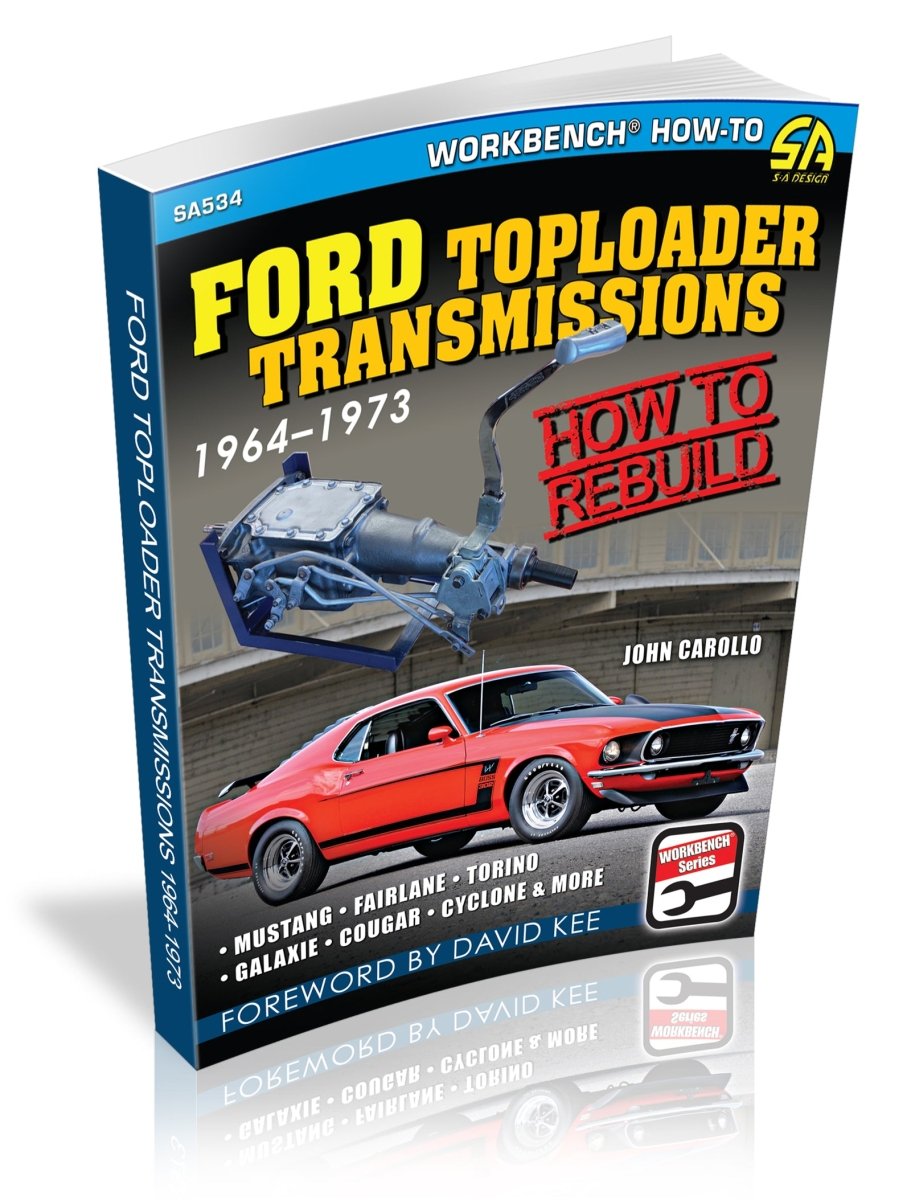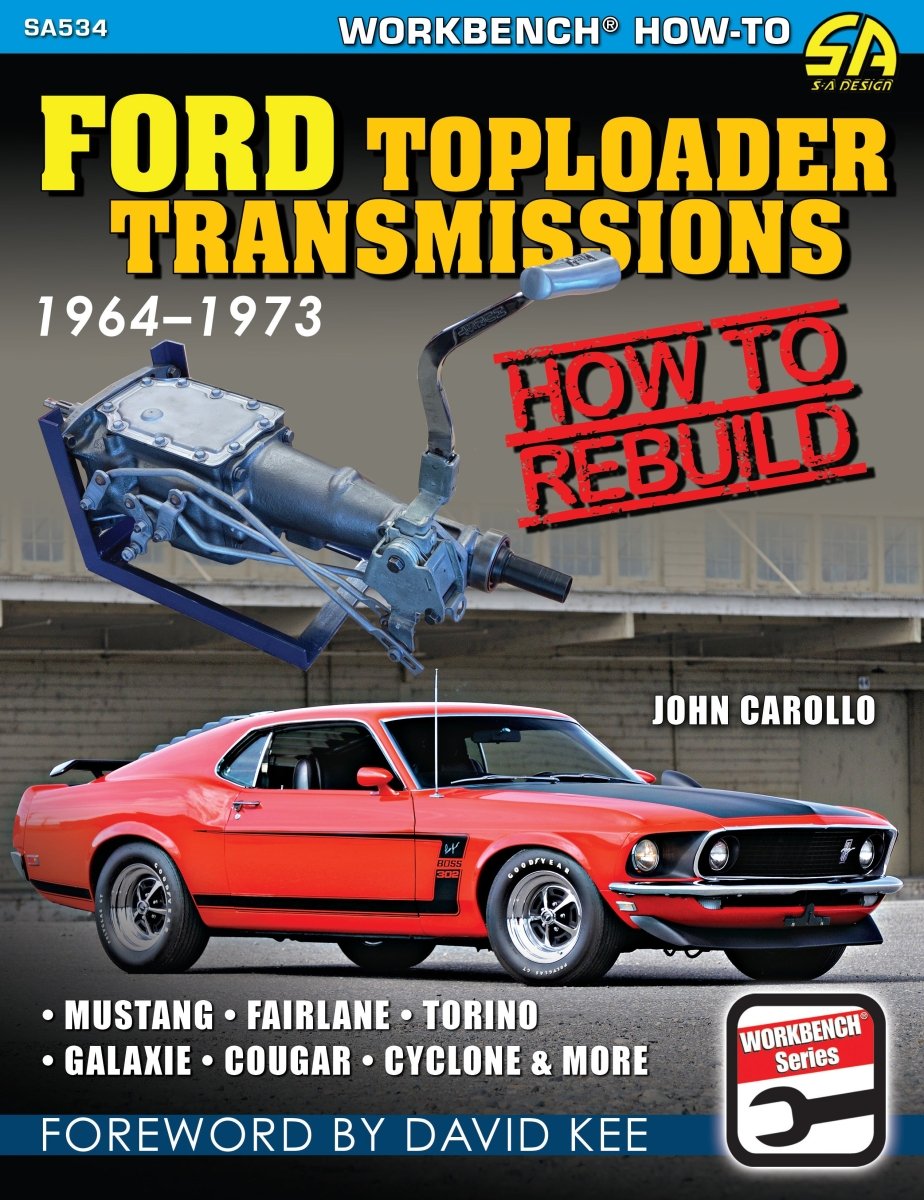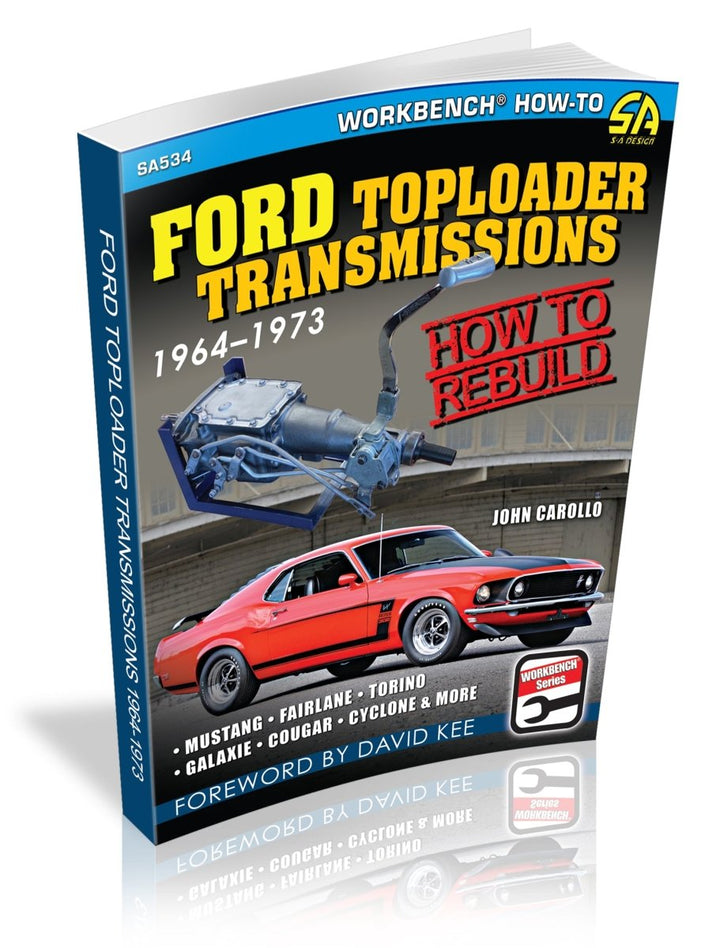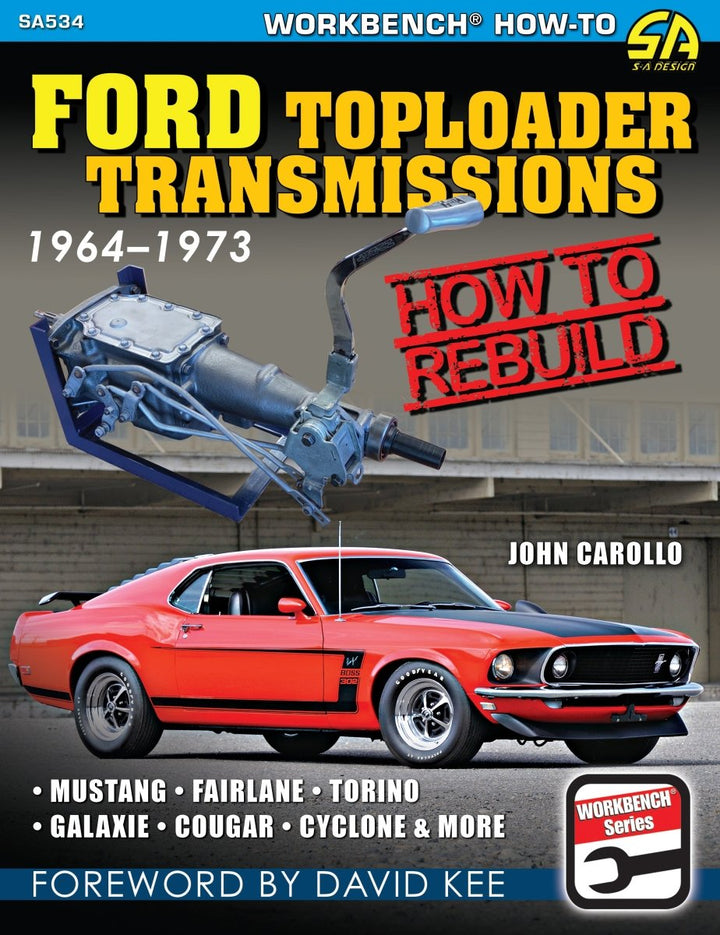Learn to rebuild and modify the Ford Toploader 4-speed transmission, which shifted millions of Ford performance cars.
Ford muscle cars of the 1960s helped the Toploader transmission quickly gain a reputation as the best of Detroit’s new 4-speeds. Introduced in 1964, this transmission was an immediate upgrade over prior models, and it paired well with Ford engines, such as the 289, 302, 351 (Windsor and Cleveland), 390, 427, 428, and 429 (Cobra Jet and Boss). The Toploader manual transmission was used in cars from Cobras to Galaxies and was mandatory equipment in the Boss cars. The simplicity of the Toploader transmission lends to an easy understanding of its operating procedure within its effective design. Even though the transmission was phased out toward the end of the muscle-car era (1973), the Toploader is still alive and well today, shifting race cars and performance cars with speed and ease.
This book features step-by-step procedures in an easy-to-follow format by award-winning motorsports author John Carollo. It shows the intricacies of how Toploaders work, aiding in their repair and offering a full rebuild blueprint. Upgrading a Toploader is also covered using today’s modern parts to keep this versatile transmission relevant. Learn what to look for with Toploader parts, where and how they fit, and how they operate together via hundreds of informative color images.
The Toploader shifted legendary cars, such as the Fairlane 427, Boss 302 Cougar, and the Mach 1 Super Cobra Jet. Whether you want to rebuild a Toploader yourself or you want to learn about the process and hire a professional, this expertly written book guides you through the process.
Pages : 144
Size : 8.5 X 11 (inches)
Format : Paperback / softback
Illustrations : 275 color photos
Publisher : CarTech
ISBN : 9781613257562
Product Code : SA534
Acknowledgments
Foreword by David Kee
Preface
Chapter 1: History and Evolution
The Early Days
The 1960s
Ford, General Motors, and Chrysler Create
4-Speed Transmissions
The Ford Design 4-Speed Transmission
Chapter 2: Identification
Understanding a Toploader’s History
Tag Codes
Case Codes
Tailhousing Codes
Bellhousing Codes
Casting Date Codes
Shift-Rail Identification
Gear Ratios
No Serial Numbers
No Codes on Input Shafts
Chapter 3: How Toploaders Work
Shifting
Gears
Chapter 4: Disassembly
Lubricant
Cover, Pre-Cleaning, and Testing
Detent Springs
Tailhousing and Snap Ring
Speedometer Gear and Ball
Front Bearing Retainer
Cluster-Gear Shaft and Input Shaft
Inside of the Case
Output-Shaft Gear Disassembly
Synchronizer Disassembly
Chapter 5: Inspection
Bearing Retainer Diameter in the Bellhousing
Cracks Around the Bearing Retainer Bolt Holes
Bearing Retainer Length on 13/8-Inch Input Shaft
Input Pilot Bushing Surface Length
Twist in the Input-Shaft Splines
Twist in the Output-Shaft Splines
Tailhousing Shifter Location
Wear in the Key Slots on the Inner Hubs of Synchronizer Assemblies
Loose Pins in the Cam and the Shafts
Excessive Wear on the Coast Side of the Engagement Teeth
Bellhousing Alignment
Shift Fork Wear in the Cam Slots
Shift Fork Thickness
Front Bearing Bore Alignment
Parts Inspection
Chapter 6: Assembly
Predetermined Sequences
Assembly
The Building Sequence
Sequence 1
Synchronizer Assemblies
Output-Shaft Assemblies
Output-Shaft Installation
Sequence 2
Sequence 3
Sequence 4
Sequence 5
Building Options
Chapter 7: Ford High-Performance Toploaders
White Stripe Toploaders
Factory Aluminum Cases
Transitional High-Performance Toploaders
Chapter 8: Aftermarket High-Performance Toploaders
Gear Cutting
Evolved Toploaders
Chapter 9: The Progression from Toploaders to Jericos
Production Methodology
Weight
Standard Features
Gear Selection
Heat Treating
From Synchronizers to Sliders and Dog Rings
Oval-Track Racing and Drag Racing
Appendix: Parts and Torque Specifications






